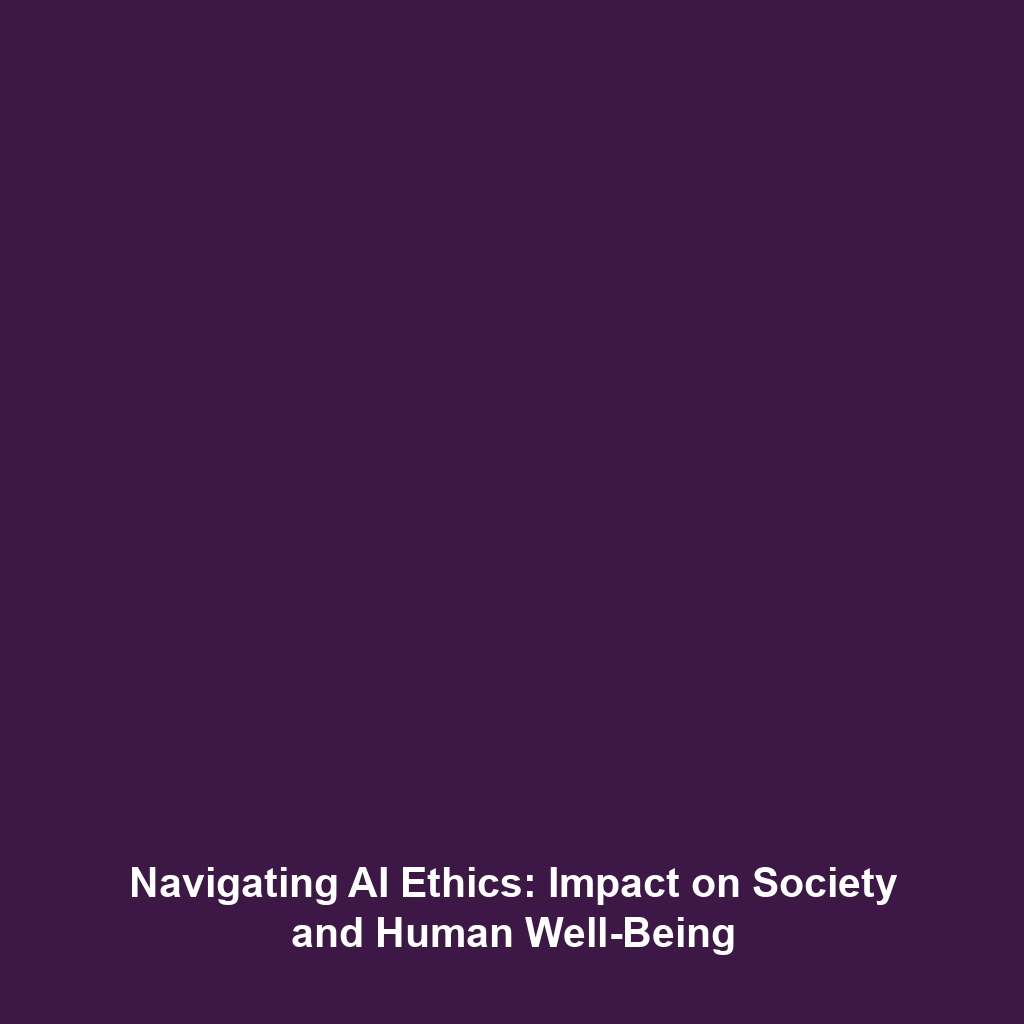AI and Society: How AI Affects Society and Human Well-Being
Introduction
Artificial Intelligence (AI) plays a transformative role in shaping modern society and enhancing human well-being. Understanding how AI affects society is essential in the broader discourse on AI Ethics, as these technologies increasingly integrate into our daily lives. AI is not merely a tool; it influences economic, social, and cultural constructs, raising vital ethical questions about its development and deployment. This exploration of AI and society emphasizes the significance of AI ethics in creating a balanced future where technology serves humanity effectively.
Key Concepts
The Intersection of AI and Society
AI and society interact significantly, marked by various concepts such as:
- Social Impact: The societal changes prompted by AI innovations.
- Ethical Frameworks: Principles governing the responsibility of developers and corporations.
- Human-Centric Design: Prioritizing user needs and societal benefits in AI systems.
These principles highlight the dominant discourse in AI Ethics, emphasizing the need for inclusive dialogue between technologists, policymakers, and society at large.
Applications and Real-World Uses
AI has numerous applications that illustrate how AI affects society and human well-being in practical ways, particularly relevant to AI ethics:
- Healthcare: AI systems assist in diagnosis, personalized treatment, and patient management.
- Education: AI tools personalize learning experiences, adapting to individual student needs.
- Employment: Automation creates new job opportunities while also displacing traditional roles.
These applications of AI contribute to improving quality of life while also posing ethical challenges that necessitate responsible governance.
Current Challenges
Studying and applying AI to society presents various challenges of AI and society within the scope of AI Ethics:
- Bias and Inequality: AI systems can perpetuate societal inequalities if not designed carefully.
- Privacy Concerns: The collection and analysis of personal data for AI applications raise significant privacy issues.
- Job Displacement: Automation threatens certain job sectors, necessitating strategic interventions.
Future Research and Innovations
The future of AI and society holds promise with ongoing innovations and research aimed at enhancing human well-being. Anticipated breakthroughs include:
- Explainable AI: Developing transparent algorithms to foster trust and accountability.
- AI for Social Good: Initiatives aimed at leveraging AI to tackle global challenges such as climate change and health crises.
- Ethical AI Guidelines: Continued formulation of robust ethical guidelines to govern AI deployments.
These advancements will shape the ethical framework guiding AI’s integration into society, promoting sustainable and equitable outcomes.
Conclusion
In summary, the interplay between AI and society is profound, impacting human well-being in numerous ways while presenting significant ethical considerations. As we navigate this complex landscape, engaging in thorough discussions on AI ethics is crucial for harnessing technology for societal benefit. To explore more about the implications of AI and ethics, visit our articles on AI Ethics and AI in Healthcare.

